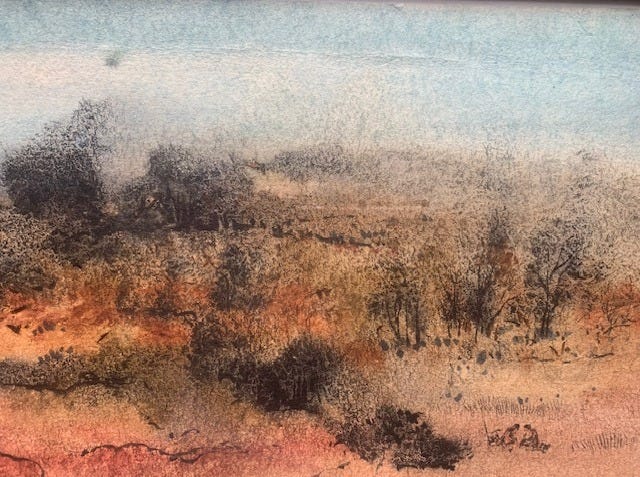Concept of the fortnight: eco-swaraj
The movement sweeping India for 'Radical Ecological Democracy'
Welcome to our second installment of ‘concept of the fortnight’! These are shorter posts where I unpack a concept that I find interesting, helpful or fun.
The concept: eco-swaraj
I first came across the environmental activist and thinker Ashish Kothari back in 2019. It was at a conference at the University of Kassel, Germany, about ‘post-development’. I interviewed Kothari for a podcast I was making called ‘Decolonising the Global Economy’.
The post-development school of thought basically sees western-enforced notions of ‘development’ pushed on poor countries — fossil-fuel-led industrialisation chasing the genie of GDP growth and consumerism — as little more than colonialism. Post-development argues instead that, if freed from Western economic and political choke-holds, communities in the Global South are perfectly capable of devising ways to lead a good life without dumping all over their environment.
Kothari has written about a movement of hundreds of communities across India finding different ways to organise themselves under the philosophy of ‘eco-swaraj’. These are incredibly diverse and range from sustainable farming and food sovereignty projects to community health to alternative education and media initiatives.
The term ‘swaraj’ became popular during India’s struggle for Independence from British colonial power, used frequently by Mahatma Gandhi. Swaraj has been translated as ‘self-rule’ but Kothari makes clear that it means much more than national independence. Instead, the term stems from ancient Indian practices of direct democracy in local assemblies. It links ideas of individual freedom with an ethics of responsibility towards others and the rest of nature and to spiritual deepening.
One example of this kind of initiative is the Waghad Irrigation Project, a unique case of community-managed irrigation in the Nashik district of Maharashtra. Another is Mendha-Lekha, a Gond tribal village, also in Maharashtra, which practices a model of self-governance and community-based forest management — having secured community forest rights over 1,800 hectares. For Kothari, these and many others are practicing a form of ‘radical ecological democracy.’
Why should we care?
The thinkers that I’m most attached to are the ones whose ideas feel liberating. They lift me up and get me excited. They are ‘brats’ in the sense that I used in my post last week on ‘Brat Socialism’. David Graeber was one of these thinkers. He didn’t care about looking like a ‘grown up’ and capitulating to stifling ideas about putting up with capitalism or state violence in the name of being ‘realistic.’
I felt the same way when I spoke with Ashish. He didn’t feel the need to concede to platitudes about Global South countries needing to ‘catch up’ with the rich world or ‘develop’ in its image. The ‘West’ might be where lot of the money and power is, but that doesn’t mean we’re living the good life. Kothari’s ideas about genuine democracy — including economic democracy — and living in harmony with nature are ‘utopian’ in the sense that they are inspiring, but they are grounded in real communities and practices that he is deeply involved with.
Kothari also links India’s eco-swaraj movement with projects all around the world that are practicing a similar ethics. These range from Kurdish ‘Democratic Confederalism’ to the Zapatistas in Mexico to Indigenous resistance to fossil fuel pipelines across the Americas and Africa.
Of course, these initiatives are at the margins of a mainstream characterised by spiraling authoritarianism coupled with ruthless neoliberal economic policy, both in India and globally. But Kothari and many others are putting in the work of linking these alternatives up so that they can learn from each other and build capacity, through projects such as the ‘Global Tapestry of Alternatives’.
Yes they’re the underdogs in our current dystopia, but this is the kind of work that can both nourish existing pockets of joy and chart a path to a future worth fighting for.





a tapestry of alternatives. I am so very happy that that exists
"David Graeber was one of these thinkers. He didn’t care about looking like a ‘grown up’".
Just for you, Laura; herein is some Reverend Billy featuring some classic David Graeber very much not caring about looking like 'a grown up' -
https://www.youtube.com/watch?v=vjJ6jWcGAg8
Kindest wishes and lots of swaraj (please). 😃🏴☠️